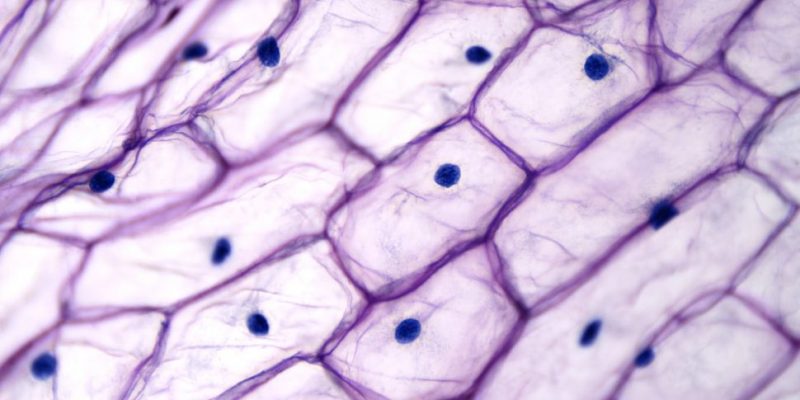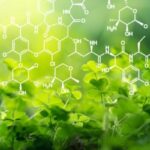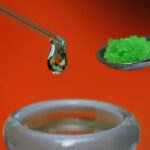We explain what chemistry is, its history, branches and applications. Also, the principles of modern chemistry and its relationship with physics.

What is chemistry?
The chemistry It is the science that studies the composition, structure and properties of matter including its relationship with energy and also the changes that can occur in it through so-called reactions. It is the science that studies substances and the particles that compose them, as well as the different dynamics that can occur between them.
Chemistry is one of the great contemporary sciences, whose appearance revolutionized the world forever. This science has offered functional and verifiable explanations for the complex behavior of known materials, capable of explaining both their permanence and their changes.
On the other hand, chemical knowledge is present in everyday life, to the extent that we use natural substances and create artificial ones. Processes such as cooking, fermentation, metallurgy, the creation of smart materials and even many of the processes that take place in our bodies can be explained through a chemical (or biochemical) perspective.
On the other hand, the domain of chemistry allowed the emergence of industry: the transformation of materials at the will of man to create useful objects (or the materials necessary to make them). In that sense, it is one of the sciences that has had the greatest impact on the world and on the history of humanity.
See also: Factual sciences
history of chemistry
In a strict sense, the history of chemistry started in the prehistory when he human began to be interested in materials by manufacturing, cooking and baking. Its link with the technological progress of humanity is unquestionable.
The word chemistry comes from Latin ars chimia (“alchemical art”), in turn derived from the Arabic term alchemywith which the pseudoscientific practice of the seekers of the philosopher's stone was named around the year 330, with which they could convert lead and other metals into gold, granting immortality or omniscience.
The first alchemists were Islamic scientists who cultivated the wisdom of elements and materials, understood as a set of bodies and spirits that, using the correct techniques, could be manipulated or transformed.
These mysterious characters used to be called “chemists” (from alchemical). However, starting in 1661, with the publication of “The Skeptical Chemist of the Irish scientist Robert Boyle (1627-1691), the term began to have a less esoteric (spiritual) meaning and more linked to the sciences.
On the other hand, the definition of chemistry has varied greatly over time. Particularly because its field has grown and evolved gigantically, giving new meaning to this discipline.
Around 1662, the Swiss scientist Christopher Glaser (1615-1670) defined chemistry as the scientific art of dissolving bodies of different materials, because in 1730 the German Georg Stahl (1659-1734) called it the art of understanding the dynamics of the mixtures.
Only in 1837 did the French chemist Jean-Baptiste Dumas (1800-1884) define it as the science that deals with intermolecular forces. On the other hand, today we understand it as the study of matter and its changes, following the definition of the famous Hong Kong chemist Raymond Chang (1939-2017).
However, Chemistry as a science began to exist in the 18th century when the first verifiable scientific experiments with matter took place in modern Europe, especially after the postulation in 1983 of the Atomic Theory by John Dalton.
Since then, chemistry has caused numerous discoveries and revolutions. In addition, it has had an important impact on similar sciences and disciplines, such as biology, physics and engineering.
The United Nations declared that 2011 would be the International Year of Chemistry, in recognition of the enormous scientific trajectory covered and the undeniable impact that this discipline has on our lives.
Branches of chemistry

Chemistry includes a large number of branches, given that its field of study approaches various sciences and disciplines. Among these branches, the following stand out:
- Inorganic chemistry Dedicated to the study of matter that does not mainly make up living beings or their substances, but rather is typical of inanimate forms of matter. It is distinguished from organic chemistry in that it is not focused on any particular element (as organic chemistry is on carbon).
- Organic chemistry. Also called the chemistry of life, it is a branch of chemistry focused on compounds that revolve around carbon and hydrogen, and which are largely what allow the composition of life.
- The biochemistry Taking a step further towards biology, biochemistry is the chemistry of the bodies of living beings, interested in the energy processes that keep them alive, in the reactions that occur in an orderly manner in their cells, and other areas of knowledge that They allow us to understand how our bodies are physically made.
- The physical chemistry Also called physical chemistry, it studies the physical bases that support all types of chemical processes, especially those related to energy, such as the area of electrochemistry, chemical thermodynamics and other sectors of physics (or chemistry, depending on how you see it). ).
- Industrial chemistry Also called applied chemistry, it takes the theoretical knowledge of chemistry and applies it to solving problems in everyday life. It goes hand in hand with chemical engineering since it is interested in the economic production of chemical reagents, in novel materials and, currently, in ways of conducting industrial activity without affecting the environment.
- Analytical chemistry Its fundamental purpose is to detect and quantify the chemical elements present in a given substance, that is, to find methods and ways to check what things are made of and in what percentage.
- Astrochemistry He moves away from the everyday world to become interested in the stars and their composition, which goes hand in hand with astrophysics. It is one of the most specialized branches of this vast science.
Importance of chemistry
chemistry meets present in the vast majority of industrial processes as well as in very everyday aspects of our lives. Thanks to it we have developed complex materials adapted to our diverse needs throughout history.
From metal alloys, to pharmacological compounds or fuels to power our means of transportation, knowledge of chemical reactions has been essential. In fact, thanks to chemistry we have changed the world around us, for better and worse.
On the other hand, probably the chemistry It will provide us with the knowledge to amend the damage caused to the ecosystem throughout our history.
Applications of chemistry

Chemistry is one of the fields of human knowledge that has the greatest applications in numerous areas of life. Some of them are:
- Obtaining energy Thanks to the manipulation of chemical substances such as fuels and hydrocarbons, or even the manipulation of atomic nuclei of heavy elements, it is possible to generate heat energy that in turn serves to generate electrical energy. This is what happens in thermoelectric or thermonuclear plants.
- The manufacture of advanced materials Thanks to chemistry, today there are synthetic fibers, smart materials and other elements that allow us to manufacture new types of clothing, better tools and unprecedented applications to improve human life.
- The pharmacology Hand in hand with biochemistry and medicine, chemistry allows the combination of compounds to produce medications and treatments that extend human life and also improve its quality.
- The improvement of agriculture Through understanding the chemistry of soils, today we can manufacture additives, fertilizers and other substances whose correct use converts poor soils into ideal soils for planting, allowing us to combat hunger and poverty.
- Sanitization and decontamination By understanding the properties of astringents, degreasers and other types of local action, we can produce disinfectants and cleaners to lead a healthier life, and also provide a remedy for the ecological damage that our own industries cause to the ecosystem.
Principles of modern chemistry
Modern chemistry is governed by the so-called quantum principle, the result of atomic theory that considers matter from different levels of complexity, such as:
- Subject. Anything that has mass, volume, and is made up of particles. It can be composed of pure substances or mixtures.
- Chemical compounds Chemical substances composed of more than one chemical element or type of atom, which does not mean that they are mixtures, but rather that they are substances whose particle framework repeats combinations of the same different elements.
- Molecules Unions of two or more atoms, into a minimum unit endowed with functionality and unique properties, resulting from the characteristics, location and abundance of the elements that compose them. A chemical compound can be reduced to its minimum molecules, but if these are “broken”, there will be no more compound and we will only have atoms, that is, the minimum pieces that compose it.
- Atoms Minimal, imperceptible particles, endowed with weight, volume, stability and electrical charge, are the bricks with which matter is made. There is a finite number of atoms, each type corresponding to a chemical element listed in the Periodic Table of the Elements.
- Subatomic particles. Particles that make up atoms and give them their properties. There are three types: electrons (negatively charged), neutrons (uncharged) and protons (positively charged). The first orbit the nucleus of the atom like a cloud, while the last two constitute the nucleus itself, and are in turn composed of even smaller and more ephemeral subparticles, called quarks.
Chemistry and physics

Chemistry and physics are sister disciplines, but they view reality from different points of view. Chemistry is the science of matter, reactions and their compositions. Instead, Physics is the science of the forces that govern the world real and that to a large extent determine the state (not the composition) of matter.
This difference in perspectives can be understood if we think about the states of matter: water is composed of two chemical elements that make up its molecules: hydrogen and oxygen (H2O). This will continue to be true when water is in a liquid state, when it freezes to a solid state, and when it boils into vapor.
In each of its physical states, the substance has very different internal energy levels product of the vibration of its particles in different modes. There is a physical change, but not a chemical change, since as in the example of water, ice and steam still have the same chemical elements.
On the other hand, by promoting a chemical reaction of water with a metal, oxide is obtained, that is, the chemical composition of both substances changes and a new one (metal oxide) is obtained, without the water ceasing to be liquid and the iron leaving of being solid, that is, without altering the physical state of the matter.
References
- “Chemistry” on Wikipedia.
- “Chemistry” at Khan Academy.
- “What is chemistry” (video) in Educatina.
- “Chemistry: science and art of matter” at UNESCO.
- “Chemistry” in The Encyclopaedia Britannica.





